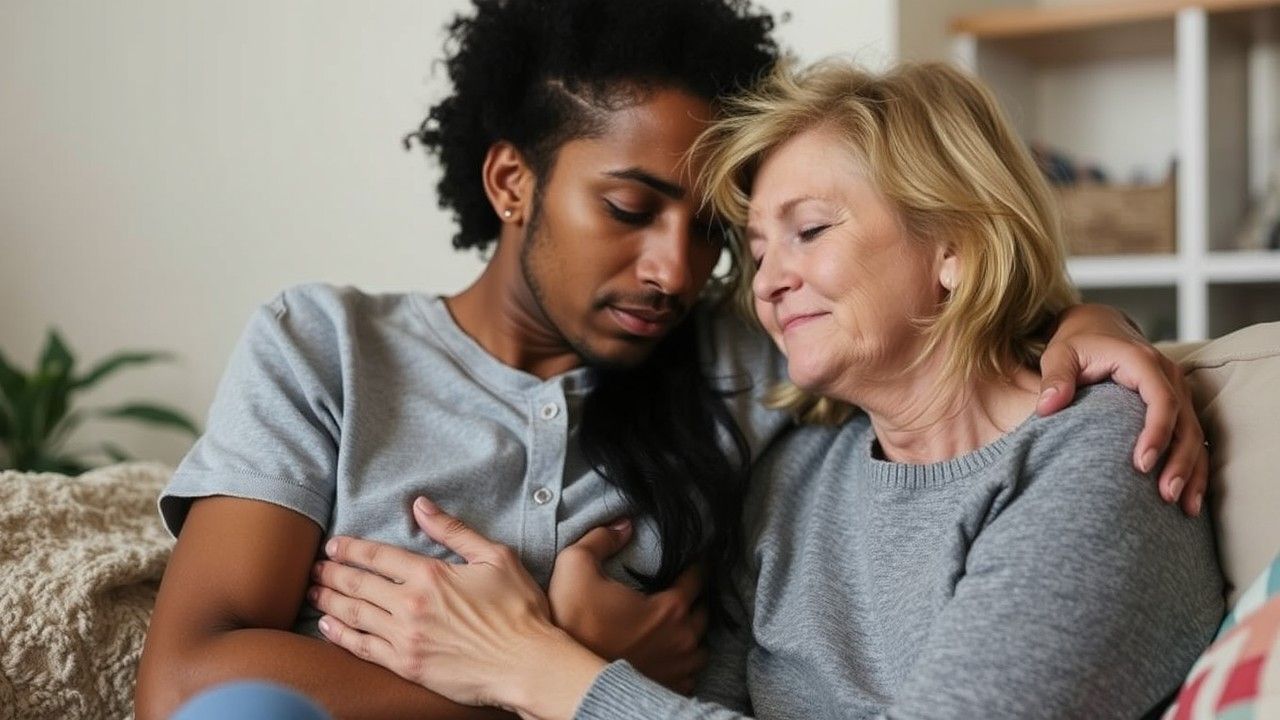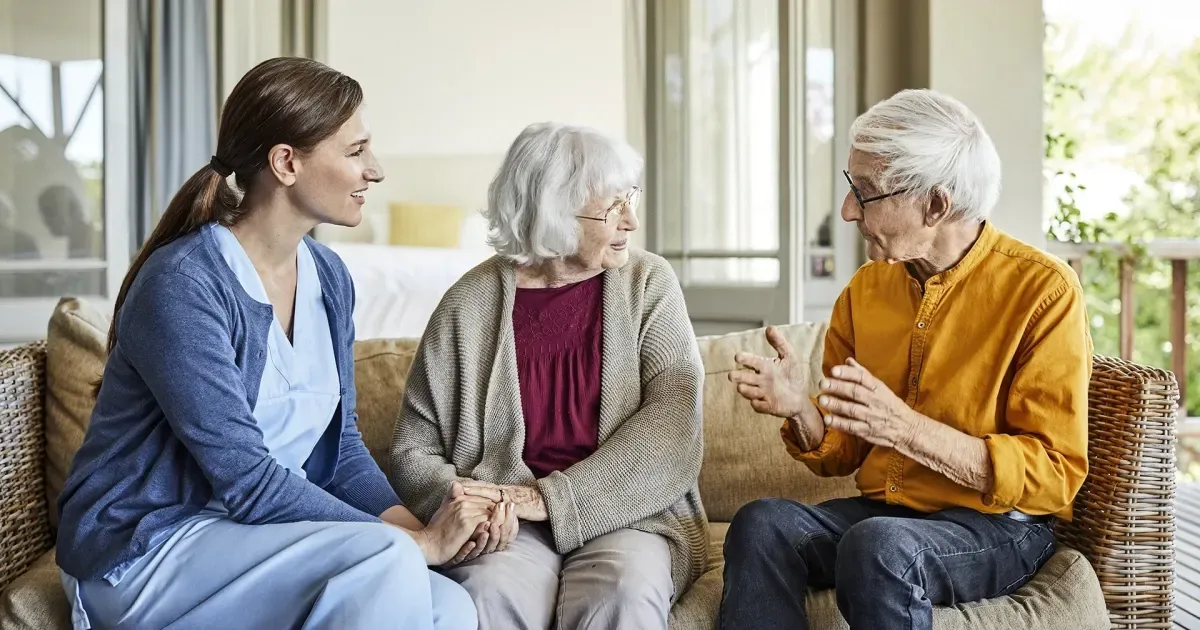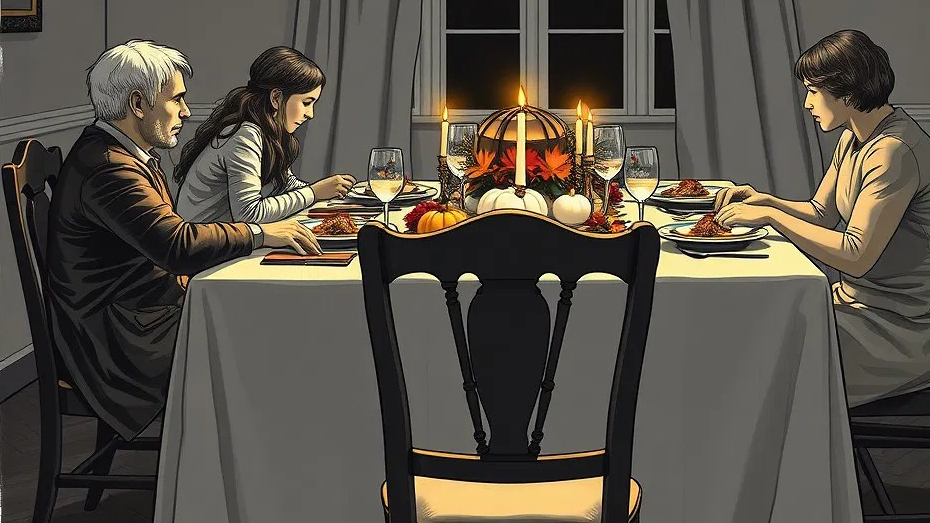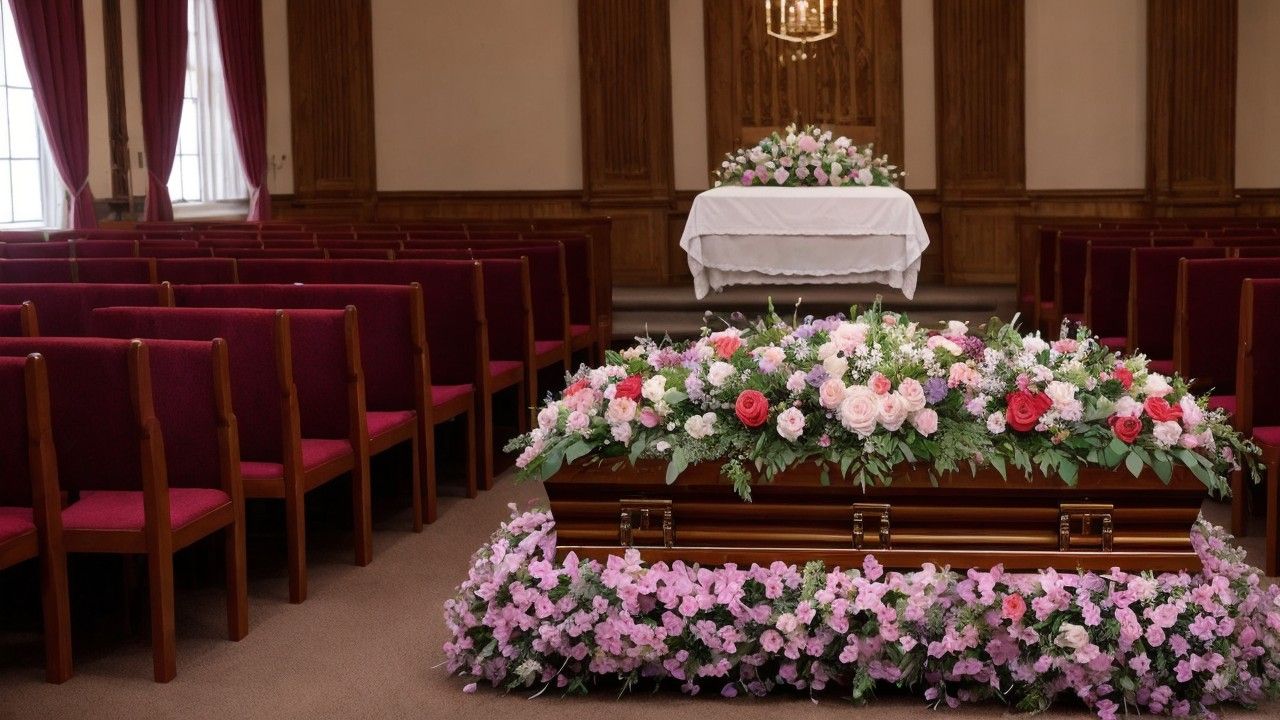Find a Trusted Proivder
Helpful Links

Business Hours
- Mon - Fri
- -
- Sat - Sun
- Closed

Share This Article
When Daniel wedded his long-time girlfriend and former colleague Sandra, he was looking forward to a long life filled with love and good health and babies and more grandbabies. Because even when you get married, you think only of love, life, and laughter. You don't think about death or how to cope with its ugliness. You look forward to picking teeth as they fall off little mouths while your own grows toothless.
He was more than ready to be a husband and father. He did become the perfect husband to Sandra but fatherhood wasn't ready for him, at least not in their first eight years of marriage. After trying for a baby for years, they finally decided to go the modern way. They had two IUI procedures performed, both of which failed. Then they tried it a third time, and the universe aligned. They became destined for parenthood.
And fatherhood seemed ready for him.
Finally.
Their joy was indescribable, typical of a couple who had struggled to conceive. They began to prepare for this new phase of their lives. As weeks fell off the calendar, they bought baby stuff. They booked an appointment with a private doctor and packed in readiness for week 37.
One evening after dinner, they were watching TV just before bedtime when Sandra complained of shortness of breath. He propped her on the couch to make her comfortable, then dashed into the kitchen to get drinking water. While there, he calls the doctor, who tells him to rush her to the hospital. As he walks back into the living room, he steps on hot red vomit. There on the floor beside the couch was his heavily pregnant wife, foaming at the mouth, having vomited blood.
Panicking, he rushes out of the apartment, taking three stairs at a time. He bangs on the neighbor's door, saying he's having a domestic emergency. The neighbor follows him back into the house. They call 911 while the neighbor performs CPR on Sandra. The ambulance guys arrive within 10 minutes. The two paramedics burst into the room carrying medical paraphernalia. They try to resuscitate her while he watches helplessly.
At one point, one of the medics reached out to feel her pulse. Daniel watched as he held her wrist for longer than it normally takes to check someone's pulse. Then he looked up at Daniel, and their eyes locked. At that moment, he didn't need to be told anything. He knew.
His beloved wife was dead.
The realization came like a heavy intense wind that wrapped around him, cutting air off his chest, choking him. He felt the world crack open under his feet. Suddenly he was overcome with a sense of urgency.
The baby!
They had 8 minutes to save the baby after the mother's death. He watched as the paramedics and the neighbor heaved his wife's body onto the stretcher. He remembered the struggle as they carried the stretcher with her heavy body down the narrow stairs. After that, everything went blank, and he had no memory of the drive to the hospital.
At the hospital, he remembered the doctors checking his wife's airways and vital organs and telling him they were sorry, but there was nothing more they could do. He remembered seeing her lifeless body being wheeled into an adjacent windowless holding room. He remembered feeling numb as a wave of pain and sadness rushed to meet him. He remembered breaking down and weeping in agony at that point.
Most of us have been through what Daniel had been through. Most of us have been confronted by this monster death when we least expected it, when our lives were just starting, when we've been through the darkest dungeons of life's dreary road, and when we were looking forward to some reprieve, some sunshine, some health and wealth.
When we felt it was time to enjoy God's goodness in the land of the living, death struck us where it hurt the most, wounded us, and pushed us deeper into the lowest depths that a human spirit can sink.
And yet, like resilient beings, we've been able to rise, to claw our way back to life. We've been able to stand on our feet again, wobbly at first yet steady over the years, and we've been able to overcome.
Death is the ultimate tragedy that tests our resilience, pushing our fighting spirit beyond its limit. The unfairness lies in its inevitability, its tendency to show up unexpectedly, and the expectations it places on us to overcome and survive it.
During those moments of numbness and helplessness, what are you supposed to do? How do you wake up to face each day? How to deal with sudden death with your sanity intact? Borrowing from personal experiences as well as research on what experts recommend, here are a few tips on how to cope with the death of a loved one.
What Happens After A Loved One's Sudden Death?
Feeling lost and dead inside? Here's what to expect and how to manage the tragedy of the unexpected death of those we hold dear.
1. The Impact Will Be Profound
When a loved one has been sick for some time, and the prognosis clearly shows they won't make it, it provides room for us to reflect, anticipate, and even accept the inevitable. That preparation period provides some cushion for the impact since we saw it coming.
The same isn't true for a sudden, unexpected death, which often comes with a whirlwind of emotions, leaving us feeling lost, disoriented, and overwhelmed.
Grieving a sudden death is twice as difficult as coping with it. If you're a victim, understand that the impact of losing a loved one suddenly will be more profound, and the grieving process doesn't follow a normal pattern. The wave of emotions often makes it hard to find closure, and coupled with the responsibility of planning a funeral and other financial stressors, your feelings of defeat and helplessness are normal and justified.
2. Embrace The Emotions
For a death that occurs after a long battle with an illness or condition, there's usually a feeling of acceptance. It is important to acknowledge that the loved one is in a better place and free from pain. However, with a sudden death, there's no right or wrong way to take it.
According to a 2023 study by the American Psychological Association, you'll have to battle the usual emotions of shock, denial, anger, numbness, and occasional outbursts.
Shock
When the human mind is overwhelmed and on the verge of breaking down, it grows numb as a defense mechanism against extreme mental pain. That's why you may be unable to think clearly, make rational decisions, or maintain calmness. You'll find yourself confused most of the time.
Daniel doesn't remember doing or saying anything after the paramedics came into the house. He went through the next events in utter shock. His friend Peter showed up at the hospital just when they were wheeling Sandra into the holding room and took over from there. Peter called Daniel's people, contacted the cops to report the incident, and drove him back home.
Anger
There will also be feelings of anger where you'll experience outbursts against those you feel could have been responsible for the death. As the weeks flew by and the pregnancy progressed, Daniel kept a note, which was basically a prayer, a litany of sorts.
This, he had read every morning and evening, beseeching God for a healthy pregnancy and successful delivery. He had asked God to bring back his wife and baby from the hospital, healthy and in one piece. When he got back home from the hospital in the early hours of that dreadful morning, the first thing he did was tear up that prayer.
“I've never hated God as much as I did that day,” he said, reminiscing about his feelings of anger after the unexpected tragedy.
“I questioned him. I had asked and even begged for children for eight years. Then, when He finally seemed to answer that prayer, He decided fatherhood wasn't my portion, as if I didn't deserve that child. He took him away a few days to delivery. Why didn't he at least leave me, my wife?”
Most of us are like Daniel. I know people who have cursed God in their anger, just as others have blamed doctors or other people for their loss.
Regret
Regret is another emotion you may grapple with after a sudden death. When my son died in my arms within hours of falling sick, I felt I had failed as a mother. I felt I didn't do much to protect him. I even wondered if I had loved him enough.
For Daniel, his biggest regret was not noticing his wife's discomfort and taking her to the hospital sooner. If only he had checked her in earlier instead of waiting for the EDD and if the ambulance had arrived sooner.
If. If. If.
When faced with such a tragedy, the best you can do is acknowledge these emotions. They're part of grief, and they aid in accepting the loss. Acknowledging them means giving yourself the space and time you need to grieve in your own way. Under no circumstances should you feel pressured to heal immediately. Just remember healing has no timeline, and when the going gets tough, getting support to cope with unexpected death is crucial.
3. Expect The Trauma
As we have previously indicated, the unexpected loss comes with intense grief, and the trauma can be profound for some people. When you're not psychologically prepared for a loss, the uncertainty it comes with is greater.
For example, unexpected loss challenges your sense of security, reminding you how little control you have over your world. Knowing that your world can be severely altered and emotions disoriented can be traumatic.
Yes, every sudden loss, whether from suicide, homicide, accident, or health complications, is tragic in every way. But a loved one dying from a stroke may attract feelings of guilt where you feel like you failed to prevent it.
4. Handle The Pain Your Way
Let no one lie to you, but once death violently barges into your world, things will never be the same again. You'll be surprised how much effort it takes to perform mundane tasks such as washing, dressing, or eating. For Daniel, the moment he stepped inside their bedroom from the hospital, he slipped on his wife's side of the bed and sank into her shape, feeling the smell of her hair on the pillow.
As waves of sorrow shook over his being and he wept into the pillow, time and life lost meaning. At that moment, he didn't want to leave the bedroom, he didn't want to talk to anybody. He just wanted to lock himself in that room and soak in whatever smell or memory was left of his wife. Family members came and filled the house, but he remained trapped in his bedroom—the last place that retained bits and pieces of his wife.
Fortunately for Daniel, his buddy Peter moved in for two weeks and got things done before and after the burial. During that time, they just sat there with TV and silence.
“It helps to think of nothing more than the here and now, " says
Yorkshire-based Brake Caseworker Gaynor Toulson.
“To avoid feeling overwhelmed, focus only on the present, the next minute, or the next hour. Worrying about the future or what needs to be done does little to help you cope with a sudden death.”
Happy are you if you have a battalion of friends and family ready to take most things off your hands. You may also feel uncomfortable visiting places you used to go with a loved one.
In my case, I avoided stepping outside between 7 am and 4 pm. Those were the moments I knew the school bus would be picking up or dropping up kids in kindergarten. I couldn't bear to see my son's schoolmates in their school uniforms while he was lying underground at the cemetery. It's okay to avoid social situations that would trigger your pain, just as it is okay to do what you feel is right for your healing journey. You have all the right to be kind to yourself.
5. The Physical Struggles Are Part of Grief
Lack of appetite is one element of grief most of us can relate to. I remember my sisters had to force me to take a bite of food before my son's funeral service. I had turned down food for the two days he was at the morgue, and on the day of the funeral, my family feared I'd faint from starvation during service.
I didn't even feel hungry. Grief had suppressed every feeling, and I had no desire for anything, including food. However, grief and hunger are an unhealthy combination, and for your health's sake, take small helpings of food. Remember to go easy on yourself and eat something not to enjoy it but to survive.
In the days following the funeral, I found myself sleeping most of the time. I found it therapeutic, and it helped relieve the emotional and mental toll my son's sudden death had on me. Those physical struggles are part of grief, and you'll get back on your feet eventually.
What To Do When Someone Dies Suddenly
The reality of an unexpected death is that not only will you have to endure pain of all sorts, but you'll also have to handle legal issues in your wretched state. You may not even know where to start, so we created this comprehensive guide on the legal processes and what to do when a loved one dies unexpectedly. You may also want to check out this guide on what's involved in planning a funeral.
With sudden deaths, a coroner may need to investigate the cause and determine if a post-mortem examination is necessary. If not, an inquest will be conducted. These legal and medical processes can compound an already difficult moment, which unfortunately can't be helped. However, a coroner may only be needed if:
- The cause of death is unknown
- The death is unnatural or violent
- The death is unexplained or unclear
A medical certificate will then be issued, after which you'll be free to start planning the funeral.
Final Thoughts On Coping With Sudden Death
Losing a loved one is painful. Knowing how to deal with sudden death calls for recognizing and appreciating your emotions, being gentle with yourself, and grieving on your own terms. Talking about the ordeal is a step in the right direction as it promotes healing. You can talk to a grief counselor or, if things get too intense, a psychiatrist. Remember, you're never alone; other people have sunk deeper into that abyss of grief and loss. If they rose and triumphed, even you will rise again.
Related Articles
Related Articles





